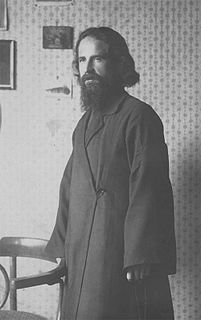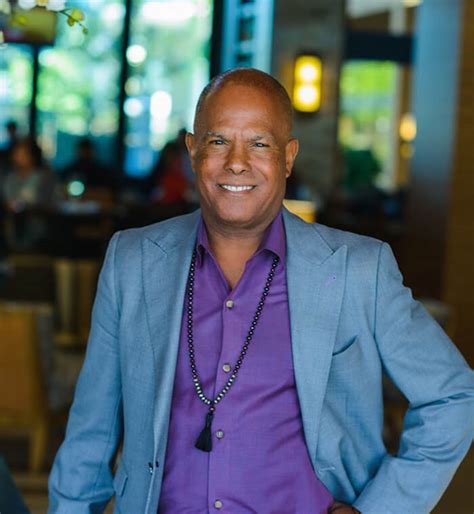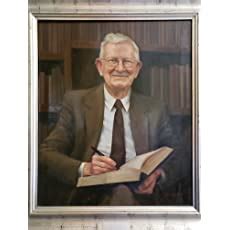A Quote by Philip Neri
He who is unable to spend a long time together in prayer, should often lift up his mind to God by short prayers.
Related Quotes
God hears and fulfills the prayer of a man who fulfills His commandments. "Hear God in His commandments," says St. John Chrysostom, "So that He might hear you in your prayers." A man who keeps the commandments of God is always wise, patient, and sincere in his prayers. Mystery of prayer consists in the keeping of God's commandments.
One way to recollect the mind easily in the time of prayer, and preserve it more in tranquillity, is not to let it wander too far at other times. You should keep it strictly in the presence of God; and being accustomed to think of Him often, you will find it easy to keep your mind calm in the time of prayer, or at least to recall it from its wanderings.
Prayer assumes the sovereignty of God. If God is not sovereign, we have no assurance that He is able to answer our prayers. Our prayers would become nothing more than wishes. But while God's sovereignty, along with his wisdom and love, is the foundation of our trust in Him, prayer is the expression of that trust.
There's an old saying that God made us in His image, and we've been trying to return the favor ever since. People often view God in a human image. This God changes His mind, gets upset, answers some prayers but not others, loves some people but not others. But even with that limited image, if we pray sincerely, we'll eventually realize that God is changeless. He's the same all the time because He's not in time-time is in Him.
Prayers prayed in the Spirit never die until they accomplish God's intended purpose. His answer may not be what we expected, or when we expected it, but God often provides much more abundantly than we could think or ask. He interprets our intent and either answers or stores up our prayers. Sincere prayers are never lost. Energy, time, love, and longing can be endowments that will never be wasted or go unrewarded.
This is the path of prayer-contemplative prayer, that is, as distinct from simple prayers of supplication and thanksgiving-which is a specific discipline of thought, desire, and action, one that frees the mind from habitual prejudices and appetites, and allows it to dwell in the gratuity and glory of all things. As an old monk on Mount Athos once told me, contemplative prayer is the art of seeing reality as it truly is; and, if one has not yet acquired the ability to see God in all things, one should not imagine that one will be able to see God in himself.
Have enough faith in the love of God to believe that a short heartfelt prayer is just as good as a long one. Too long a session of prayer usually means that in your heart you really doubt the love of God, and think that a great deal of effort and toil will be necessary to move Him. Pray quietly and sincerely for a reasonable time-and then leave the matter, expecting success.
... so our customary practice of prayer was brought to mind: how through our ignorance and inexperience in the ways of love we spend so much time on petition. I saw that it is indeed more worthy of God and more truly pleasing to him that through his goodness we should pray with full confidence, and by his grace cling to him with real understanding and unshakeable love, than that we should go on making as many petitions as our souls are capable of.
That his prayer was nothing else but a sense of the presence of GOD, his soul being at that time insensible to everything but Divine love: and that when the appointed times of prayer were past, he found no difference, because he still continued with GOD, praising and blessing Him with all his might, so that he passed his life in continual joy; yet hoped that GOD would give him somewhat to suffer, when he should grow stronger.
When the Congress first met, Mr. Cushing made a motion that it should be opened with prayer . . . Mr. Samuel Adams arose and said he was no bigot, and could hear a prayer from a gentleman of piety and virtue, who was at the same time a friend to his country. He . . . had heard that Mr. Duche . . . deserved that character and therefore he moved that Mr. Duche . . . might be desired to read prayers to the Congress . . . . After (he read several prayers), Mr. Duche, unexpected to everybody, struck out into an extemporary prayer, which filled the bosom of every man present.
If God's people hunger deeply enough, God will hear and send revival. God requires more than casual prayers for revival. He wants His people to hunger and thirst for His mighty working. To seek God's face is far more than occasionally mentioning revival in our prayer. It involves repeated and prolonged prayer. It requires holy determination in prayer, examining ourselves to see if anything in our lives is hindering God.































